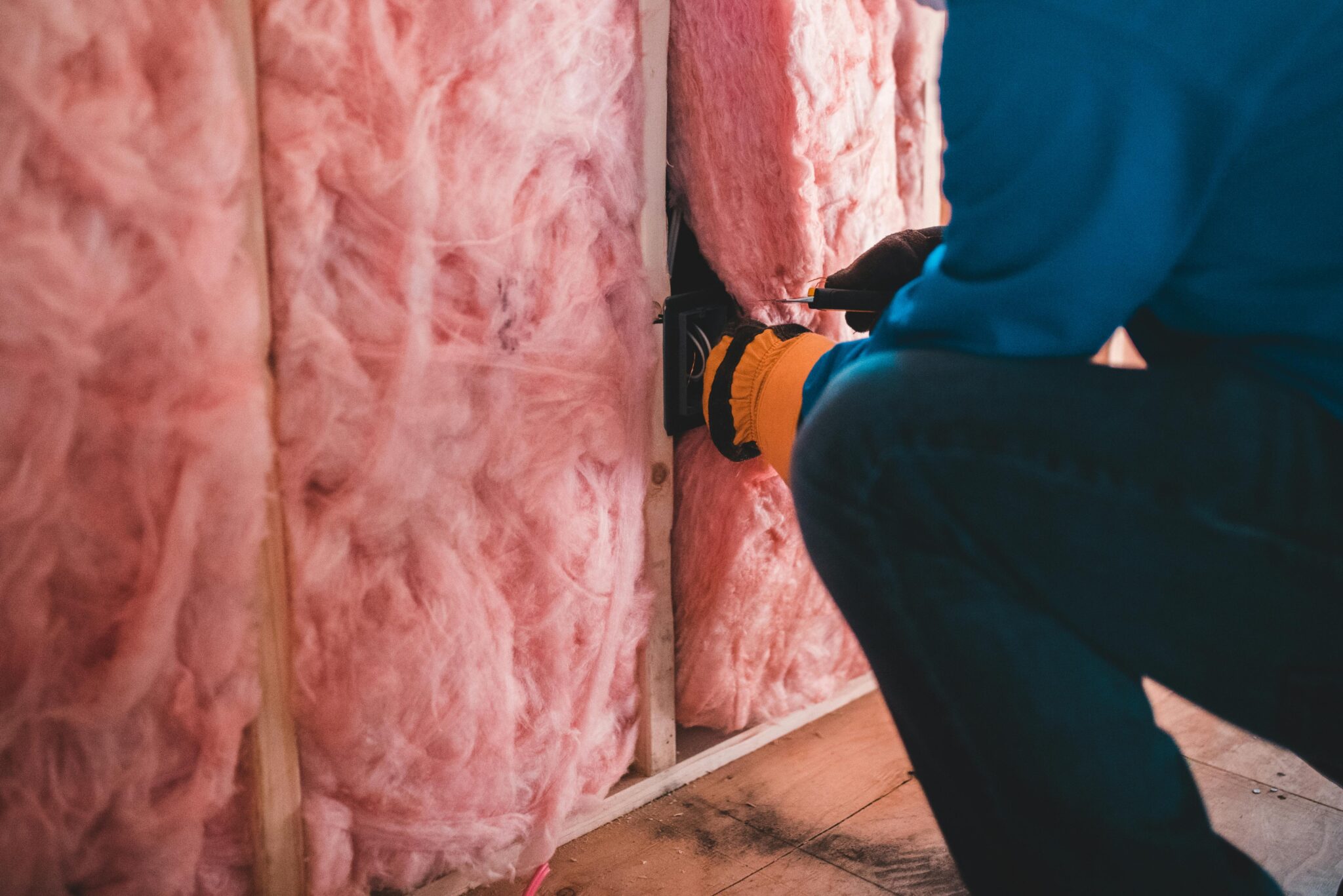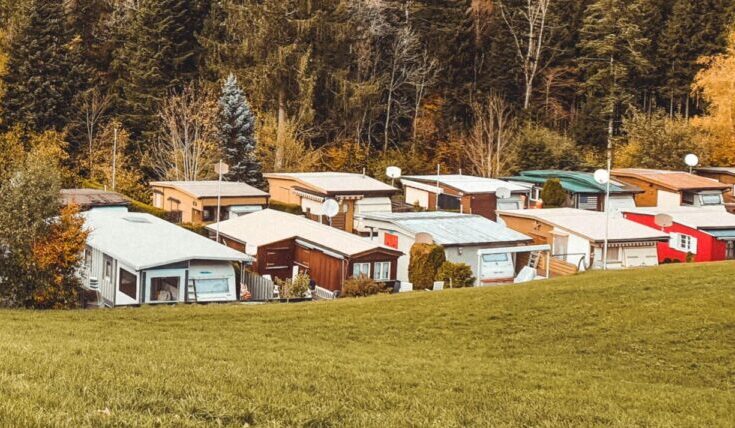HB 1217 of the 2025 legislative session directed Commerce to create an “online resource center to distribute information to landlords about available programs, associated services and resources.” HB 1217 also directs Commerce to calculate and publish an annual maximum rent increase beginning June 1, 2025, and annually thereafter. This page will serve as the Landlord Resource Center and host the annual maximum rent increase limit.
Annual rent increase limit for residential properties
RCW 59.18.700 specifies that a landlord may not increase the rent for any type of tenancy during the first 12 months after the tenancy begins. After the first 12 months, a landlord may increase the rent during any 12-month period of the tenancy up to 7% plus the Consumer Price Index, or 10 percent, whichever is less. Certain properties and situations are exempted, as defined in RCW 59.18.710.
The maximum annual rent increase percentage is calculated using the June 12-month percent change in the Consumer Price Index for all urban consumers, all items, for the Seattle area as published by the United States Bureau of Labor Statistics.
Maximum annual rent increase
-
- The maximum annual rent increase percentage allowed for properties subject to the Residential Landlord Tenant Act (RCW 59.18) unless specifically exempted as defined in RCW 59.18.700 through 12/31/2025 is 10.0%.
- The maximum annual rent increase percentage allowed for properties subject to Residential Landlord Tenant Act (RCW 59.18) unless specifically exempted as defined in RCW 59.18.700 between 1/1/2026 and 12/31/2026 is 9.683%.
- The maximum annual rent increase percentage allowed for each calendar year will be published shortly after release of the June data by the federal U.S. Bureau of Labor Statistics, which is typically in early July of each year.
Rent increases under the Manufactured/Mobile Home Landlord-Tenant Act (MHLTA) (RCW 59.20) are limited during any 12-month period of a tenancy to 5 percent.
Under the MHLTA,
- Rent increases are prohibited during the first 12 months of a tenancy.
- There are limited exemptions to the rent increase limitations (RCW 59.20.380).
- A landlord must provide tenants with a written notice of rent increases using the Rent and Fee Increase Notice to Tenants. The notice must be served in accordance with the requirements for service of notices under the unlawful detainer laws and the MHLTA (RCW 59.20.390).
- Properties subject to the MHLTA (RCW 59.20) must abide by this annual rent increase limit.
- MHLTA rent increase limit and related provisions do not include an expiration date.
Calculation values
- U.S. Bureau of Labor Statistics, Consumer Price Index for All Urban Consumers (CPI-U)
- All items in Seattle-Tacoma-Bellevue, WA, all urban consumers, not seasonally adjusted
- Base period: 1982-84=100
- Series ID: CUURS49DSA0
Calculation results
- Calculation through 12/31/25
- June 2023 Index value: 341.734
- June 2024 index value: 354.824
- Increase calculation: = ((354.824 – 341.734) / 341.734) + .07 = 10.8%
- Maximum annual rent increase percent through 12/31/2025: 10.0%
- Calculation for 1/1/26 – 12/31/26
- June 2024 index value: 354.824
- June 2025 index value: 364.344
- Increase calculation: =((364.344-354.824)/354.824)+0.07 = 9.683%
- Maximum annual rent increase percent through 12/31/2025: 9.683%
Landlord resources provided by Commerce
This Landlord Resource Center is designed to share information with landlords about available programs, associated services and resources.
Landlord Mitigation Program
The Landlord Mitigation Program, created in RCW 43.31.605 and launched in 2018, originally offered damage relief to landlords providing housing to tenants receiving rental assistance. Since then, it has expanded to include several subprograms to provide additional relief for landlords, including for landlords of survivors fleeing domestic violence, sexual assault, harassment and stalking, and for tenants facing eviction for non-payment of rent.
Low-Income Residential Weatherization Program
The Weatherization Program offers cost-effective energy efficiency and related repairs to reduce energy bills and increase home health, safety and durability. Commerce allocates federal and state funds to local agencies that specialize in insulation, air sealing, ventilation, and more to ensure your home stays cozy in the winter and cool in the summer.
Multifamily Housing Unit Property Management Resources
The Multifamily Housing Unit Property Management Resource page provides resources for property management and maintenance best practices including links to state and federal resources.
Mobile Home Community Owner Resources
Effective July 23, 2023, manufactured/mobile home community owners are required to give written Notice of Opportunity to Compete to Purchase their manufactured/mobile home communities or the properties on which they sit. Community owners must provide these notices to community tenants, qualified tenant organizations, the Department of Commerce (Commerce), and the Washington State Housing Finance Commission. Commerce is required to provide these notices to eligible organizations.
Legal resources for landlords
General
- Rent and Fee Increase Notice to Tenants for residential properties (Box)
- Information about Small Claims Court: Small Claims Courts in Washington are designed to be a user-friendly, low-cost way of settling legal disputes up to $10,000.
- WashingtonLawHelp: WashingtonLawHelp is maintained by the Northwest Justice Project that provides self-help legal information for renters and landlords, including information about topics like repairs, deposits and the eviction process.
- Washington State Housing Finance Commission Landlord/Tenant Resources: Provides state and local resources. The page provides links to some local agencies that offer landlord-tenant information and dispute resolution.
- ResolutionWashington is the member association for Dispute Resolution Centers (DRCs) in Washington. Dispute Resolution Centers may help resolve disputes between landlords and tenants. Find a local DRC.
Residential
- Residential Landlord-Tenant Act: The Residential Landlord-Tenant Act (RLTA) establishes the rights and responsibilities of landlords and tenants in residential rental properties. It covers most situations where a tenant regularly pays rent to a landlord for a place to live, regardless of whether the agreement is verbal or written, or for a fixed term or month-to-month.
- Washington State Office of the Attorney General Residential Landlord-Tenant Resources: Provides a list of resources that may assist landlords and renters with landlord-tenant law issues.
Manufactured Housing Communities
- Rent and Fee Increase Notice to Tenants for manufactured/mobile home lots (Box)
- Manufactured/Mobile Home Landlord-Tenant Act: Washington’s Manufactured/Mobile Home Landlord-Tenant Act (MHLTA) establishes the rights and responsibilities of landlords and tenants who own their home but rent lot space in a manufactured or mobile home park.
- Washington State Office of the Attorney General Manufactured Housing Dispute Resolution Program: Enforces the Manufactured/Mobile Home Landlord Tenant Act, educates stakeholders, and fosters relationships between manufactured/mobile home community land owners and homeowners.
- Washington State Office of the Attorney General Manufactured/Mobile Home Landlord Tenant Act: Highlights rental agreements and their role in a manufactured/mobile home landlord-tenant relationship, as well as the rights and duties of both the landlord and tenant.
- Manufactured Housing Communities of Washington (MHCW): MHCW is a statewide association of community owners and managers. MHCW provides community owners and managers industry education and informational materials.




